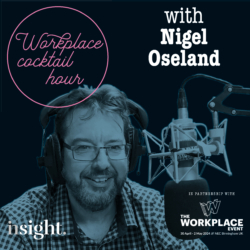February 1, 2024
Firms want to embrace AI, but bewildered by range of options
 The vast majority of Chief Information Officers plan to increase AI tool spending in 2024, but say their teams are overwhelmed by the number of apps on the market. As a result, 77 percent are concerned about application sprawl adding to their complexity and security risks. That is according to a new report from Canva which includes insights from more than 1,360 CIOs on their priorities, opportunities and the challenges of managing their IT amid the AI boom. The company commissioned Harris Poll to survey CIOs from the UK, US, France, Germany, Spain, Brazil, Mexico, India, and Australia to understand how they’re managing application sprawl and making decisions about workplace tools in the AI era. (more…)
The vast majority of Chief Information Officers plan to increase AI tool spending in 2024, but say their teams are overwhelmed by the number of apps on the market. As a result, 77 percent are concerned about application sprawl adding to their complexity and security risks. That is according to a new report from Canva which includes insights from more than 1,360 CIOs on their priorities, opportunities and the challenges of managing their IT amid the AI boom. The company commissioned Harris Poll to survey CIOs from the UK, US, France, Germany, Spain, Brazil, Mexico, India, and Australia to understand how they’re managing application sprawl and making decisions about workplace tools in the AI era. (more…)





































January 31, 2024
The three biggest disruptors of our time
by Jennifer Bryan • AI, Business, Comment, Environment, JB, Technology